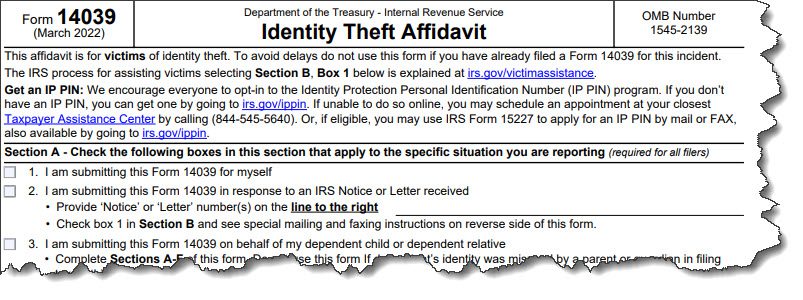What to Do If You Get a Letter From the IRS
It’s not always a bad thing. Why you might get a letter from the IRS, and what to do about it.
Few return addresses are as nerve-wracking as the one that says Internal Revenue Service. No matter what time of year it is, those words can strike fear in our hearts. Did I make a mistake on a return and I owe a bunch of money? is usually the first thought that crosses our minds.
In reality, there are many reasons why you might receive correspondence from the IRS, some OK and some not so OK. The important thing is that you deal with immediately, even if you’re not sure what you’re going to do. The agency will tell you if you have any options.
Pay no attention to the fact that the IRS may be slow in responding to any queries or responses. They’re overworked and understaffed. But they will get back to you eventually. Just be sure to handle things on your end quickly.
Here are the most common reasons why you might receive a letter from the IRS.
You owe them money.
Why would you have a balance due with the IRS? There’s more than one possibility. Maybe you owed them money and neglected to pay it. Or you made an error on your return. Or you claimed a deduction or credit that you shouldn’t have. Whatever the reason, you need to either submit what you owe or consider starting the appeals process.

Did you make a mistake on your return? Was the number you entered on line 37 insufficient, or did you claim a refund when you were actually expected to pay?
If you can’t pay what you owe, you might apply for an IRS payment plan. If you do so, you should still follow the stated guidelines for responding to the letter, to let the agency know that you received the letter and are working on resolving the issue.
You paid too much.
Yes, the IRS will contact you if for whatever reason you sent in too much money. Usually, the letter will be accompanied by a check for the balance.
Warning: If you receive a phone call or email out of the blue from someone who claims to be from the IRS, it’s a scam. They may say that you paid too much and they want to deposit what’s owed you in your bank account. Of course, they’ll want your social security number and bank account information to confirm the transfer. Or they might threaten you with legal action if you don’t pay the amount they claim you owe. They’ll give you a special address and tell you how to make the payment. Some have been known to request the funds by buying gift cards, as ludicrous as that sounds. The IRS sends letters.
The IRS has a question about your return.
Don’t panic. They need to clarify something on your 1040 or supporting forms and schedules that’s unclear. It doesn’t necessarily mean you’ve made a mistake. If this happens, we’ll be happy to look at the letter and go over your return with you.
They need additional information.
Again, this is not a reason to start hyperventilating. It could be that you left out a form or schedule but entered a related number on the 1040. Maybe you didn’t complete every field required on a form or schedule. This should be easy to clear up. Hopefully.
The IRS needs to verify your identity.

If you think someone has stolen your identity and submitted a fraudulent tax return, You’ll need to complete this form.
If the IRS says it needs to know you are who you say you are, it doesn’t necessarily mean you’re a victim of identity theft. There are other signs of this, like an inability to e-file your return because someone has already used your social security number. But identity theft is always a possibility. Here’s the IRS’ guide on what you should do. We also encourage you to contact us so we can help you go through the steps required to sort things out with the agency.
There are other reasons why you might get a letter from the IRS. The agency might have changed your return. Or they may be letting you know that the processing of your return has been delayed. If you’re contacted for any reason, be sure to respond promptly. This may minimize any interest or penalties you might owe. And it helps if you’re going to go through the appeals process.
You may be hesitant to deal directly with the IRS. If that’s the case, let us know, and we’ll help guide you through your correspondence and any actions you have to take.
SOCIAL MEDIA POSTS
If you receive a letter from the IRS and aren’t sure how to respond, let us know. We can help you handle it.
Don’t fall prey to IRS scams. Remember that the agency doesn’t send emails or make phone calls and demand money. It sends letters.
You may receive a letter from the IRS that simply asks for additional information. Don’t panic, but respond immediately.
If the IRS sends you a letter for any reason, it’s important that you answer right away. There will be contact instructions.


